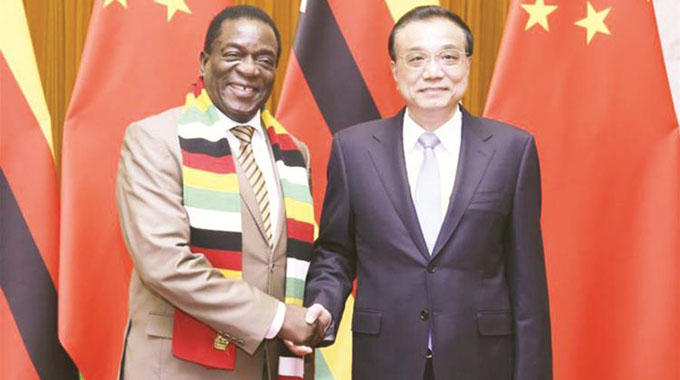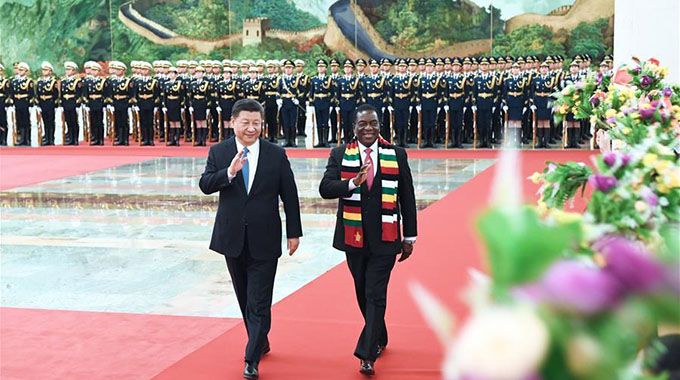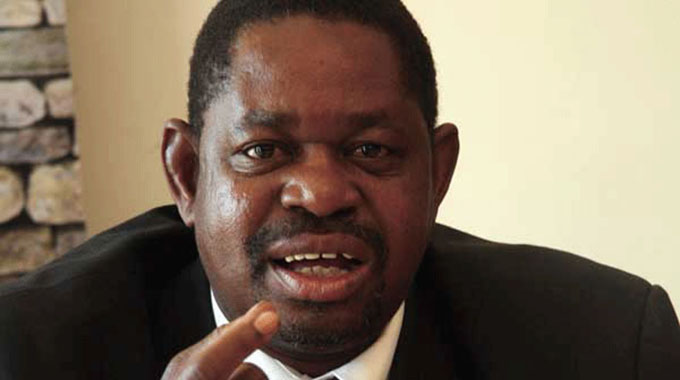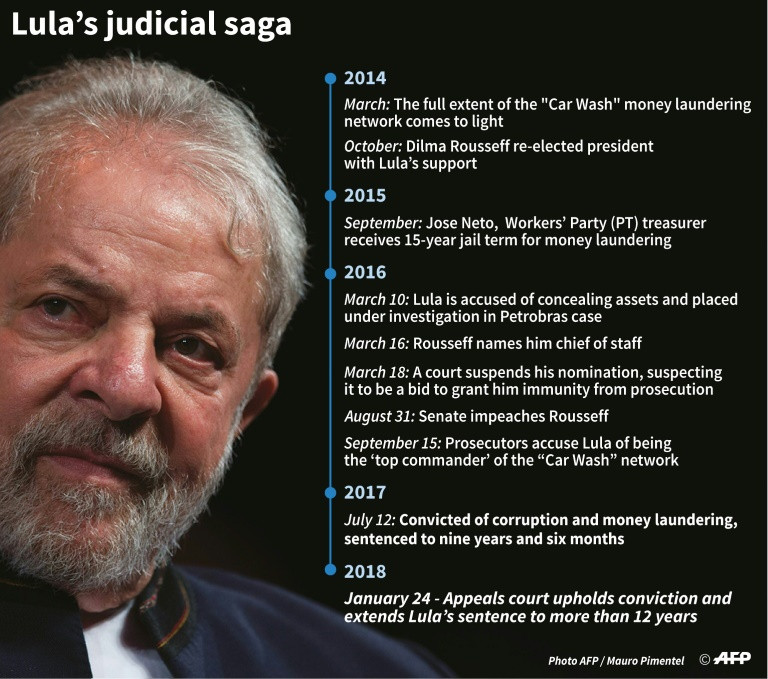State visit a huge success -ED

Victoria Ruzvidzo in Beijing, China
President Emmerson Mnangagwa has said his State visit to China has been very successful and has given momentum to Zimbabwe’s thrust of rebuilding the economy .
The State visit began on Monday and ends tomorrow.
In an interview with the China Global Television Network yesterday, President Mnangagwa said Zimbabwe had laid bare its challenges in reviving the economy before China and the Asian giant had given positive responses.
“While my visit to the People’s Republic of China has been my first State visit outside Africa, it has been a resounding success. We had a very long discussion with President Xi Jinping and we covered an array of issues political, economic, regional and international.’’
Some of the secured deals so far include the impending refurbishment of Hwange Power Station Units 7 and 8 which is set to increase power generation by 600 megawatts, the infrastructure development deal under which the world’s largest infrastructure development company – China Communication Construction Company – will set up a regional office in Zimbabwe and undertake road, rail, air and dam construction projects once a Memorandum of Understanding signed on Monday is operationalised.
China and Zimbabwe have also signed at least seven MoUs on economic cooperation, skills development, education and other facets of the economy over the last three days.
“I am so happy with the chemistry that has developed between us. Zimbabwe is going through a new dispensation and there is a lot of hope and expectation, so we have come to the People’s Republic of China as our first port of call outside Africa and I am hopeful that the assistance in terms of grants and loans will see help us greatly,” said President Mnangagwa.

President Mnangagwa and his Chinese counterpart President Xi Jinping during a welcome ceremony at the Great Hall of the People in Beijing, capital of China, on Tuesday. – (Picture by Xinhua/Rao Aimin)
He is accompanied by First Lady Amai Auxillia Mnangagwa and Cabinet ministers Cdes Sibusiso Moyo, (Foreign Affairs and International Trade), Patrick Chinamasa (Finance and Economic Development), Simon Khaya Moyo (Energy and Power Development), Oppah Muchinguri-Kashiri Environment, Water and Climate) and Supa Mandiwanzira (ICT and Cyber Security).
Cdes Joram Gumbo (Transport), Mike Bimha (Industry and Commerce), Prisca Mupfumira (Tourism and Hospitality).
During the interview with CGTN host Tian Wei, President Mnangagwa described the 18 years in which Zimbabwe was under economic sanctions as crippling, stating that the people of Zimbabwe had high hopes that the economy would come right soon.
Therefore, it was critical for Zimbabwe that China, the world’s second largest economy, had come to the party in a big way.
On Tuesday President Xi said China was more than ready to assist Zimbabwe to overcome its economic challenges. The two countries have escalated their relationship from just all-weather friends to a more comprehensive framework that will see more active participation by the Asian giant in Zimbabwe’s economic rejuvenation.
“Zimbabwe is open for business and it is necessary now that we run with a programme that uplifts our economy. My priority is that Zimbabwe must develop and Zimbabwe is open for business, like I said.”
China has become Zimbabwe’s largest source of investment while trade between the two countries has breached the $1 billion mark.
Such sectors as agriculture, mining, manufacturing, infrastructure development and tourism had immense opportunities for investors.
President Mnangagwa and his delegation left Beijing for the Anhui Province last night where he is scheduled to visit the Anhui Foreign Construction Company and the Anhui Agricultural Company.
He will also hold talks with China Communist Party secretary Li Jinjin and Governor of the Province Li Guying.
“Anhui is an agricultural powerhouse and my administration needs to modernise and mechanise agriculture. As you know, Zimbabwe is an agro-based economy,” he said.







Comments